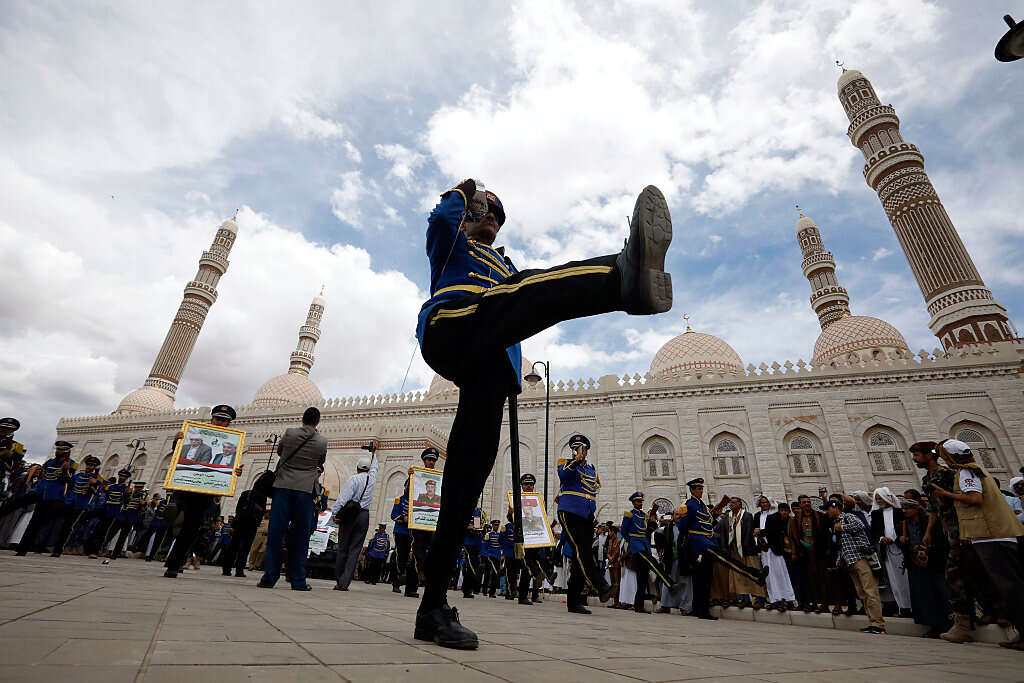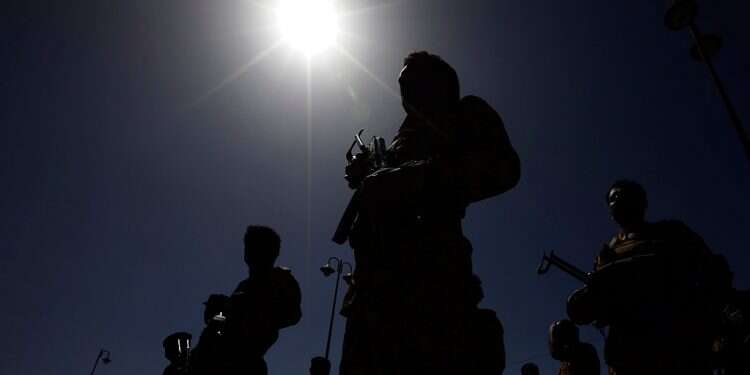Observers recognize that US President Joe Biden's administration, unlike previous ones, does not place Middle East crises as a high priority. This is partly because this administration is more focused on domestic issues than anything else.
Follow Israel Hayom on Facebook and Twitter
It is specifically turned to tackling China's growing global influence. But President Biden, who since the beginning of his presidential term has wielded the slogan "America is back," is certainly well aware of the link between stabilizing Yemen on the one hand and the Iranian ayatollahs' stranglehold on that Arab country on the other.
Comments by US Special Envoy to Yemen Tim Lenderking were a clear and vocal recognition of the ayatollahs' role in stoking the Yemeni crisis by supporting the Houthi movement.
Lenderking told the House Foreign Affairs Committee that "Iran's support to the Houthis is quite significant, and it's lethal" and that it helps them "fine-tune" their drone and missile programs. He sees no sign that Iran is supporting a political solution in Yemen.
"What I see is continued aiding and abetting an army of Houthis by the Iranians so that they can continue attacking Saudi Arabia, and unfortunately those attacks have risen quite strongly in the last couple of months."
This conclusion, reached by the US envoy upon taking office, is meant to shape a US position that reflects the Biden administration's commitment to a political settlement of this crisis. The ayatollahs have abandoned their role in supporting the Houthis. They are now talking about military activities to prop up the Houthis against Saudi Arabia.
Gen. Rostam Ghasemi, economic assistant to the commander of the Iranian Revolutionary Guard Corps, said in an exclusive interview with RT that the IRGC provided weapons to the Houthis at the outbreak of the war in Yemen. The IRGC has trained elements of these forces in weapons manufacturing.
Iran has thereby acknowledged assistance to the Houthis' arms industry with Iranian technology and providing what it says is limited military support. This rare Iranian recognition of Houthi military aid was not capricious. It came at a crucial time. The ayatollahs seek to play this role and leverage it further in "deals" negotiated with regional and international powers.

Venturing to hand over this recognition on a silver platter to others was only a matter of choosing between the potential losses and profits of denying and affirming the ayatollahs' regime's role in prolonging Yemen's crisis.
Speaking of, the Iranian official's recognition of Iran's limited military role in Yemen and the fact that it is currently limited to military consultations does not diminish its severity and impacts.
No one said that the IRGC was in fact fighting alongside the Houthis. It was not the numbers that the Houthis lacked in the first place, but the material and equipment. This is what the ayatollahs have provided and continue to provide through smuggling, assistance in the manufacture of weapons, explosives, and the list goes on.
But it is a stretch to agree with what General Rustam Kassimi says about the transfer of military manufacturing technology from Iran to the Houthis. The ayatollahs do know how dangerous this technology is when in the wrong hands. This is especially true of Iranian drones and precision-guided missiles.
So if we agree that these weapons are manufactured in Yemen, it would follow that in addition to preserving the secrecy of the equipment and technology, the manufacturing process in its sensitive phases takes place entirely under Iranian supervision in Yemen at all stages, given the ease of movement of Iranian equipment and experts by various means.
Let's look back before this plain and clear acknowledgment of the ayatollahs' regime's role in the Yemen war. There were implicit signs and hints that came timidly and did not draw attention to this role. The last one, that of Iranian Foreign Minister Javad Zarif, in March, in an interview with Iranian Press TV.
The minister said that Iran "has not received any proposal to end Tehran's support for the Houthis in exchange for ending Washington's support for the coalition's operations in Yemen." He said he wondered, "Can the support given to the Houthis be compared to that of Riyadh and Abu Dhabi?"
His words are garden-variety, but they do entail an admission by the Iranian diplomat that Iran is supporting the Houthis, whether that be in a significant or limited way. These are his estimates, and he is well aware of how difficult it is to establish with certainty the extent of this support. Such support goes down many paths, and it is hard to get an accurate picture of it.
My guess is that the ayatollahs are deliberately revealing their role in Yemen now because their main agenda is under a cloud. Linking their raison d'être and the negotiations on their nuclear program to their geopolitical role and influence in Yemen is fundamental; it will only be achieved by acknowledging this role.
And that is in order to use it as a negotiating chip, whether it is by securing American concessions on Iran's nuclear program, or by establishing itself as a key party in efforts to resolve the Yemeni crisis in order to secure the strategic interests driving the ayatollahs' involvement in the conflict in the first place.
Subscribe to Israel Hayom's daily newsletter and never miss our top stories!
Yet despite all the trouble and complications, the ayatollahs should not be rewarded after their explicit acknowledgment of direct involvement in the Yemen war. If this acknowledgment means anything, it's their direct joint responsibility for the attacks on civilian and oil facilities in Saudi Arabia, with all that implies under international law.
Salem al-Ketbi is an Emirati political analyst and a former candidate to the UAE's Federal National Council.




